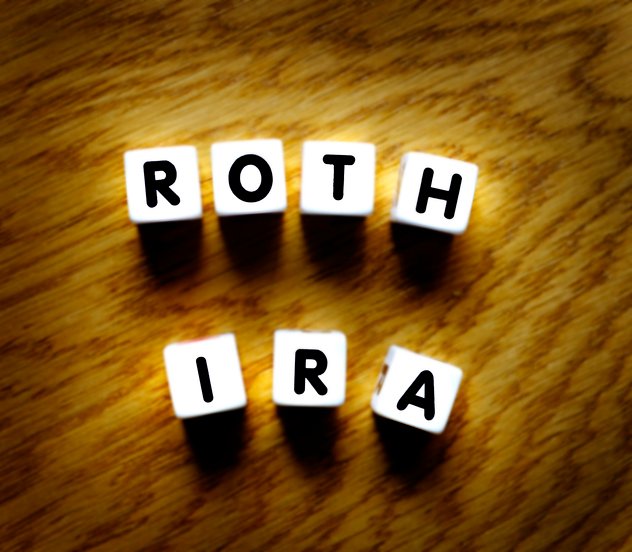You generally need earned income—such as wages, tips, or self-employment income—to contribute to a Roth IRA, since these accounts are meant to support retirement savings from active work. If you don’t have earned income, you typically can’t contribute directly, though exceptions like spousal IRAs or indirect strategies may offer alternatives. A financial advisor can help you explore alternatives like spousal IRAs or backdoor Roth strategies if you don’t have earned income but still want to contribute to a Roth IRA.
Eligibility to Contribute to a Roth IRA
To contribute to a Roth IRA, you generally must have earned income from wages, salaries, commissions or self-employment activities. Investment income, Social Security benefits and pension payments don’t qualify as earned income for Roth IRA contribution purposes. The maximum you can contribute is either the annual limit set by the IRS or your total earned income for the year, whichever is lower.
Unlike traditional IRAs, Roth IRAs have no age restrictions for contributions. As long as you meet the income requirements and have earned income, you can continue contributing to a Roth IRA regardless of your age. This feature makes Roth IRAs particularly attractive for older workers who want to continue building tax-free retirement savings well into their later years.
You can make Roth IRA contributions for the current tax year up to the tax filing deadline of the following year, which typically falls on April 15.
What Counts as Earned Income?

Earned income refers to money you receive as compensation for work or services you provide. This includes:
- Wages
- Salaries
- Tips
- Bonuses
- Commissions
- Net earnings from self-employment
The IRS views these income sources as directly tied to your effort and labor, making them eligible for Roth IRA contributions.
Not all money coming into your household counts as earned income for Roth IRA purposes. Passive income sources—like interest, dividends, pension payments, annuities and rental income—don’t qualify. Similarly, unemployment benefits, alimony, child support and Social Security benefits fall outside the earned income category. These distinctions matter significantly when determining your eligibility to contribute to a Roth IRA.
Keeping proper documentation of your earned income is important for tax purposes. W-2 forms from employers, 1099 forms for independent contractors and Schedule C for self-employment income provide necessary proof of your earnings. These records not only support your tax filing but also verify your eligibility for Roth IRA contributions, helping you avoid potential penalties for excess contributions.
Exceptions to Contribute to a Roth IRA Without a Job
While you generally need earned income to contribute to a Roth IRA, it is possible to make contributions without a job. This can help individuals continue building their retirement savings uninterrupted during periods of unemployment, caregiving or education.
These exceptions include:
- Spousal IRA contributions: If you’re married filing jointly, your working spouse can contribute to your Roth IRA on your behalf. The working spouse must earn enough income to cover contributions to both accounts. Maximum contribution limits apply to each IRA separately. However, the total can’t exceed you and your spouse’s taxable compensation.
- Taxable alimony: Alimony received under divorce agreements finalized before 2019 counts as compensation for IRA contribution purposes. This income can qualify you to make Roth IRA contributions even without traditional employment.
- Roth conversions: You can convert traditional IRA or 401(k) funds to a Roth IRA regardless of employment status. While this doesn’t technically count as a contribution and may trigger taxes, it allows you to move money into a Roth account without having earned income.
- Custodial Roth IRA for minors: Children with any earned income can have a custodial Roth IRA opened for them. Even income from babysitting, lawn mowing or part-time work qualifies, allowing young people to get a jump on tax-advantaged retirement savings.
Can Retirees Contribute to a Roth IRA?
Retirees can contribute to a Roth IRA even after they’ve left the workforce. However, they must have earned income. While retirement itself doesn’t disqualify someone from making Roth IRA contributions, the earned income requirement applies regardless of age or retirement status.
Many retirees who work part-time jobs can use this income to fund Roth IRA contributions. Even modest earnings from consulting, freelancing or a part-time position can establish eligibility. It is possible to make contributions up to either the amount of earned income or the annual limit ($8,000 for those 50 and older in 2025), whichever is lower.
For retirees who are eligible, the tax-free growth and withdrawals of a Roth IRA can provide significant advantages in retirement planning. Unlike traditional IRAs, Roth IRAs have no required minimum distributions during the owner’s lifetime. This can offer greater flexibility for legacy planning and tax management in later retirement years.
Can I Open a Roth IRA for My Kids If They Don’t Have Income?
The IRS requires that anyone contributing to a Roth IRA must have earned income—regardless of age. As such, children must have legitimate earnings to qualify for a Roth IRA.
Children can establish eligibility for a Roth IRA through various legitimate income sources. Babysitting, lawn mowing, paper routes or part-time jobs all qualify as earned income. Even if your child works in a family business, their compensation must be reasonable for the work performed and properly documented with appropriate tax filings.
Children with earned income can contribute up to 100% of their earnings or the annual IRA limit, whichever is less. Maintaining proper documentation of your child’s income is crucial, including payment records, invoices or W-2 forms. This helps establish legitimacy should the IRS ever question the contributions.
Bottom Line

You generally can’t contribute to a Roth IRA without earned income, such as wages or self-employment pay, but a spousal Roth IRA allows a non-working spouse to contribute if they file jointly with a working spouse.
Retirement Planning Tips
- If you’re looking for ways to boost your retirement savings, a financial advisor can help you create a plan. Finding a financial advisor doesn’t have to be hard. SmartAsset’s free tool matches you with vetted financial advisors who serve your area, and you can have a free introductory call with your advisor matches to decide which one you feel is right for you. If you’re ready to find an advisor who can help you achieve your financial goals, get started now.
- Mandatory distributions from a tax-deferred retirement account can complicate your post-retirement tax planning. Use SmartAsset’s RMD calculator to see how much your required minimum distributions will be.
Photo credit: ©iStock.com/eric1513, ©iStock.com/Daniel Balakov, ©iStock.com/standret
Read the full article here
















